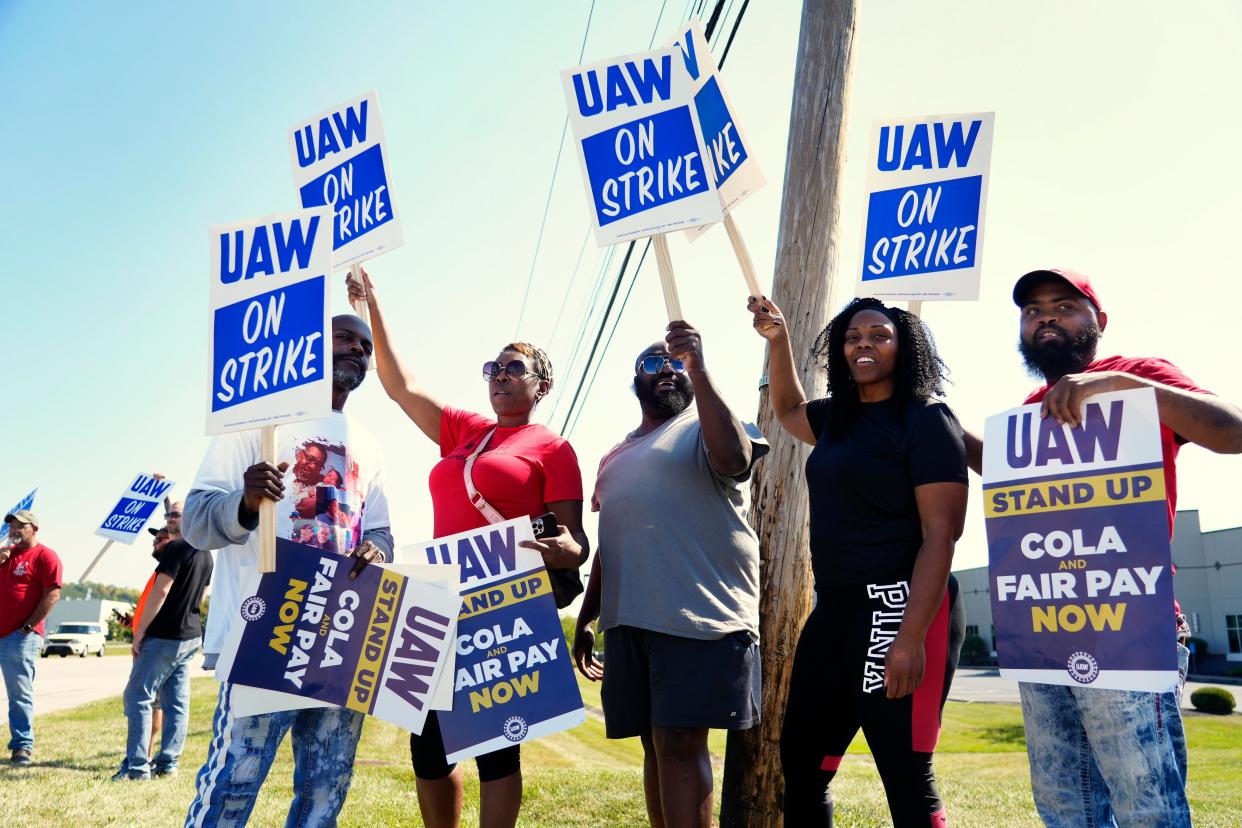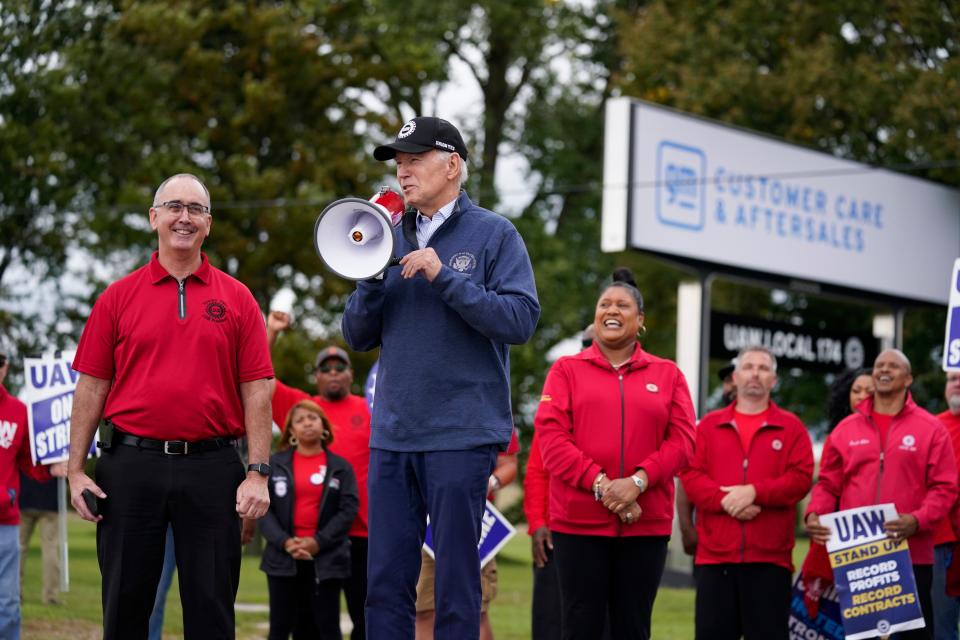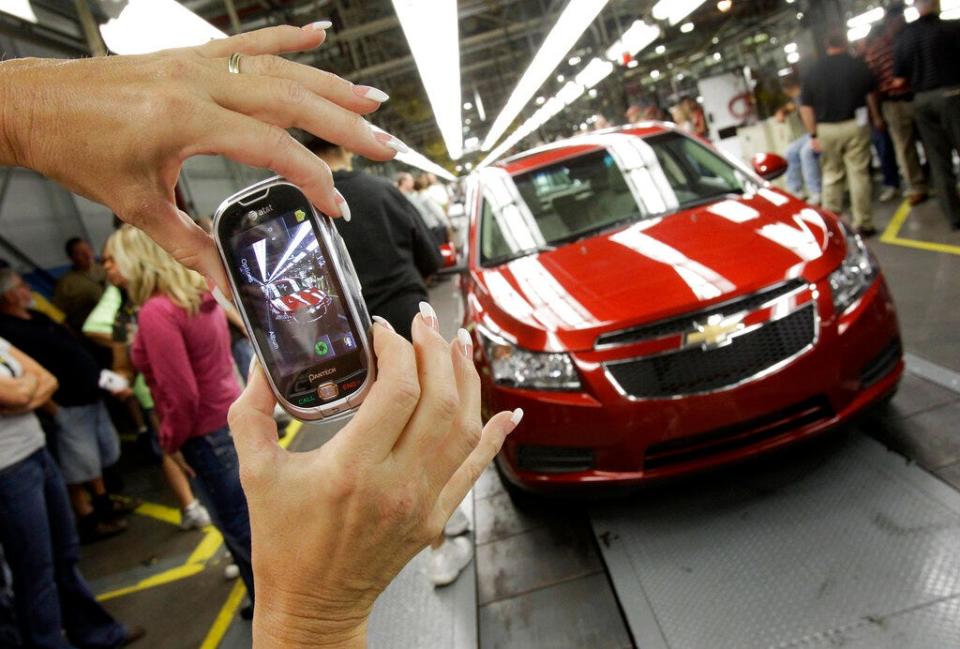UAW wants back concessions that saved automakers | Opinion

- Oops!Something went wrong.Please try again later.
On Sept. 14 at 11:59 p.m., the 2019 contract between the UAW and Ford, GM and Stellantis (formerly Chrysler) expired and a new tentative contract agreement has not been reached. The International UAW called for a historic strategic, targeted strike on all three automakers, a first in the UAW’s 88-year history. As of Sept. 26, the UAW and Ford have made progress on contract negotiations, unfortunately GM and Stellantis have not, requiring additional UAW Locals to join the picket lines on Sept. 22, including UAW Local 674 in West Chester (GM Distribution).
I want to take a moment to provide some clarity to the general public on how important the negotiations are between the UAW and Ford, GM and Stellantis, as what we bargain for in our contracts, have direct and indirect consequences for the autoworkers, working men and women in the small businesses in the communities where we work and live, and our local, state and federal government budgets.
In 2009, the Big 3 − Ford, GM and Chrysler − were on the ropes, and while Ford did not require a government bailout, GM and Chrysler each took a bailout from the federal government. But for each company to survive long-term, UAW members made steep concessions in pay, gave up cost of living inflation pay, loss of benefits, loss of pensions for anyone hired after 2009 and other quality of life issues such as scheduled shift hours, overtime requirements and the ability for each company to place a two-tier wage structure which required any new employees to start at roughly half the wages of the legacy employee with a longer term to make top-out pay.

Since then, Ford, GM and Stellantis have made $164 billion in combined profits, $24 billion in the first six months of 2023 alone. The three CEOs of each company have also enjoyed a 40% to 70% wage increase, hefty stock options and the ability to have flex hours and the option to work from home. While the CEOs' quality of life has improved, UAW members in parts, production, powertrain and assembly plants have poured time and sweat into making the companies profitable with limited profit sharing and modest improvements in some workplaces. Unfortunately, UAW members have never fully recovered the concessions made since the 2009 contracts.
In a March 24, 2014 interview on CNBC "Squak Box," Bill Ford stated that the UAW (2009 concessions) saved Ford Motor Company. Because GM and Stellantis both were bailed out by the federal government through their bankruptcies, neither GM or Stellantis have ever recognized that the concessions also saved them as well. On August 31, 2023, the UAW filed a lawsuit against GM and Stellantis for failure to negotiate in good faith on the 2023 contract.
What are the UAW members demands for the 2023? To receive back many of the concessions that have made these companies billions. Those demands include a double digit pay raise, return of pensions and retiree health care for new hires, increases in vacation time and restorations of quality of life issues that have created hardships for families and communities across the nation, including the shuttering of plants in Lordstown, Ohio, Belvidere, Illinois and the closing of the Ford Batavia Transmission Plant in June of 2008 which impacted 800 jobs and left Clermont County looking for ways to make up the lost revenue for small businesses and the county budget.

The communities where UAW members work and live, enjoy the security autoworkers jobs provide. Most of these auto plants are in rural communities where small businesses rely on the workers spending their money in the grocery, auto parts, car washes, hardware and medical care facilities. While it is estimated that six jobs in small parts plants are a direct result of one job at an automotive plant, 20 jobs are created in the community for each autoworker job. Their jobs include teachers, waiters, retailers and local EMT, police and firefighters, which also rely on the tax dollars that come from the autoworkers in the form of payroll, property and sales taxes. The quality of life issues UAW members win in contract negotiations also filter into the overall national workforce including the 40-hour work week, weekends off, company provided health insurance, overtime pay and retirement plans. Autoworkers also are often some of the most generous in our communities through donations to sports teams, school functions and holiday drives. They also participate in local events that support the communities.
UAW members have a long history of being the workforce that keeps America moving. Today we are just asking for the companies to recognize our work in building quality vehicles our country depends on. We ask them for a true fair day's pay for the fair day's work we have always given. Most importantly, we ask for your community support as we continue to negotiate for a fair contract for all workers.
Ben Brady is chairman of the Greater Cincinnati UAW CAP Council.

This article originally appeared on Cincinnati Enquirer: UAW wants back concessions that saved automakers
